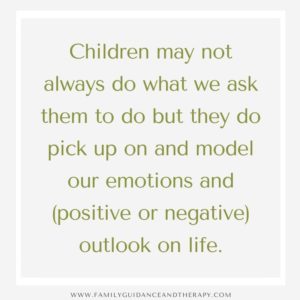How Do We Help Our Kids Cope and Move Forward?
No matter how hard we try to reduce the stress in our kid’s environment, it will still be a part of their lives.Resilient children learn to navigate life’s challenges by being problem solvers.
It is not possible or reasonable to protect your child from every challenge in life, but you can help your child develop problem-solving skills and equip them with ways that help them cope and move forward.
Resilience Starts with Connections
Strong connections with people provide social support to your child as well as strengthen resilience. Trusted relationships help your child feel less stressed. They do not internalize everything, which helps to build self-confidence.
Strengthen your relationship by spending valuable one-on-one time with your child. This does not mean you have to etch out alone time with your child every day. An overall awareness of how you spend your time doing everyday activities (technology-free attention) can help to create a safe space atmosphere that encourages your child to feel secure and to share their feelings.
Teach your child how to make friends and help them develop empathy so they not only learn to express their own feelings, but they listen and become a true friend that helps others.
Build a Strong Foundation for Resilience
Help your child learn to cope and move beyond challenges through a foundation of self-care and goal setting.
Relaxation
What happens when you do not take time to relax and just “be”? For most of us, our anxiety level inches upward. Teach your child to set aside time to simply relax. Help your child work unstructured and creative time into their day. Help them to become aware of how this time promotes a sense of positivity and stress reduction.
Be aware of your child’s exposure to things that can pull them down mentally – such as the news, internet, or conversations about issues that are troubling. Ensure your child takes a break from anything that exposes them to negativity.
Self-care and Daily Routines
When life is rushed and daily routines are neglected, our problems can feel overwhelming. Help your child create and maintain structure through daily routines. This helps to create a sense of calm and self-control.
Teach your child the importance of proper nutrition and exercise. Make a learning game out of it so your child does not look at it as a routine that they “must do” because they’ve been told to.
Proper sleep is an important coping element in life. Lack of sleep can leave us with poor ability to think and make decisions. Help your child develop a healthy bedtime and sleep routine.
Goal Setting
When we achieve our goals, we develop a confident sense of “I can do this!” Goal setting promotes a sense of achievement in your child’s mind.
Help your child not only set goals but break large goals down into smaller actionable steps.
Your praise is an important piece in the success of your child’s goals. Build your child’s self-confidence by helping them see what they have accomplished.
Help Your Child Learn Problem-Solving Skills
Support and guide your child to cope in life and move forward by following some basic problem solving do’s and don’ts.
Do allow some risks and mistakes.
You want your child to be happy and safe, of course, but when you overcompensate and eliminate all risks and mistakes, your child will not learn from their own experiences.
When your child makes a mistake, avoid asking them “why” questions, such as, “Why did you do that?” Remind your child that mistakes happen and ask them how they can make it better next time.
Do allow your child to think things through.
If your child is nervous or worried about a situation, do let your child know that you are aware and that they have your support, but prompt your child to think about it and then tell you how they feel they should approach things.
If your child encountered a similar situation in their past, consider asking, “Remember when this happened (describe the scenario)? I think it worked out well for you. Do you remember how you handled it?”
Help your child practice self-compassion!
Don’t provide all the answers.
When your child comes to you for solutions to their problems, help them sharpen their problem-solving skills by replying with, “I don’t know. Tell me what you think you should do?”
Help your child understand that they are not alone with their dilemma, that others encounter and feel perplexed in similar situations. When it is obvious that your child needs your help, reply with, “Let’s put our heads together and figure out how you can get through this.” Prompt your child to take the lead.
Model Positivity
How you personally handle stress and problem solve teaches your child how to cope with difficulties and move forward.
Children may not always do what we ask them to do but they do pick up on and model our emotions and (positive or negative) outlook on life.
Avoid beating yourself up. We all make mistakes in life, and so do our children. Teach your children that they do not have to be perfect and allow them to learn from the consequences of their actions. This is not a “bad” reflection on you.
You sometimes feel momentary anger or sadness. It happens. Teach your child that we all feel emotions. It is okay to occasionally feel upset, and it is okay to share how we feel. Your children will learn that difficulties in life become great learning opportunities.
Seek Help
You and your child’s circumstances in life are unique which makes the development of resilience a personal journey. Use your own experiences and knowledge to guide your child, but if this feels as if it isn’t working, or if your child seems stuck or overwhelmed, know that you are not alone. We can help.
At the Family Guidance & Therapy Center, we serve the whole family with therapy designed to help you get the most out of life.
There is no way to quantify your love for your loved ones. We are here for you so that your family stays strong. We are supportive of your values and determined to help each member of your family grow.
There are three easy ways to make an appointment with us, schedule an appointment online, call 619-600-0683, or text 619-607-1230.

